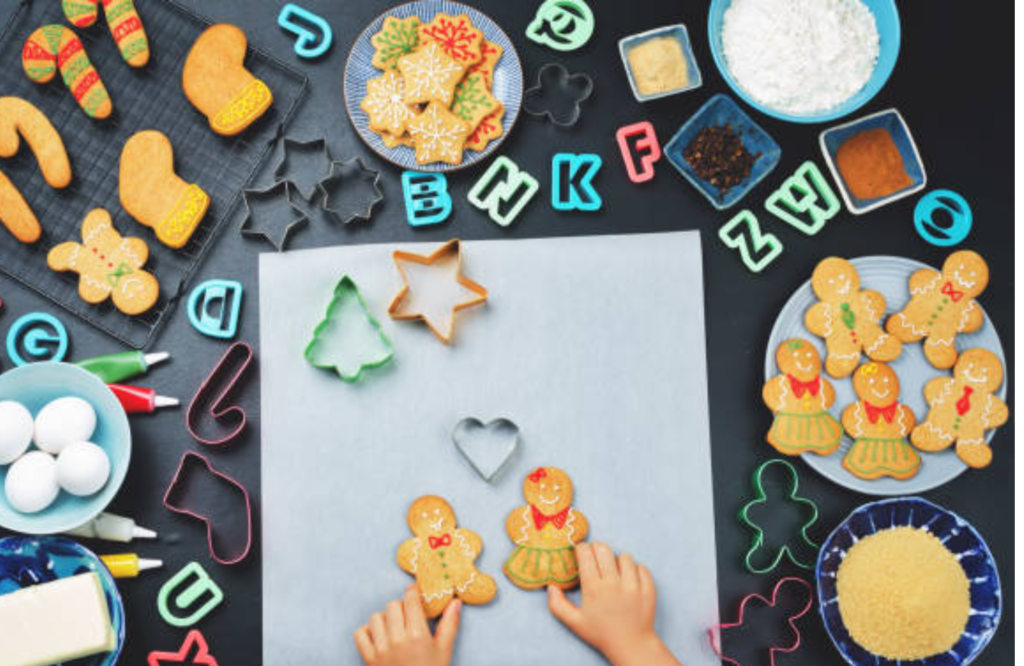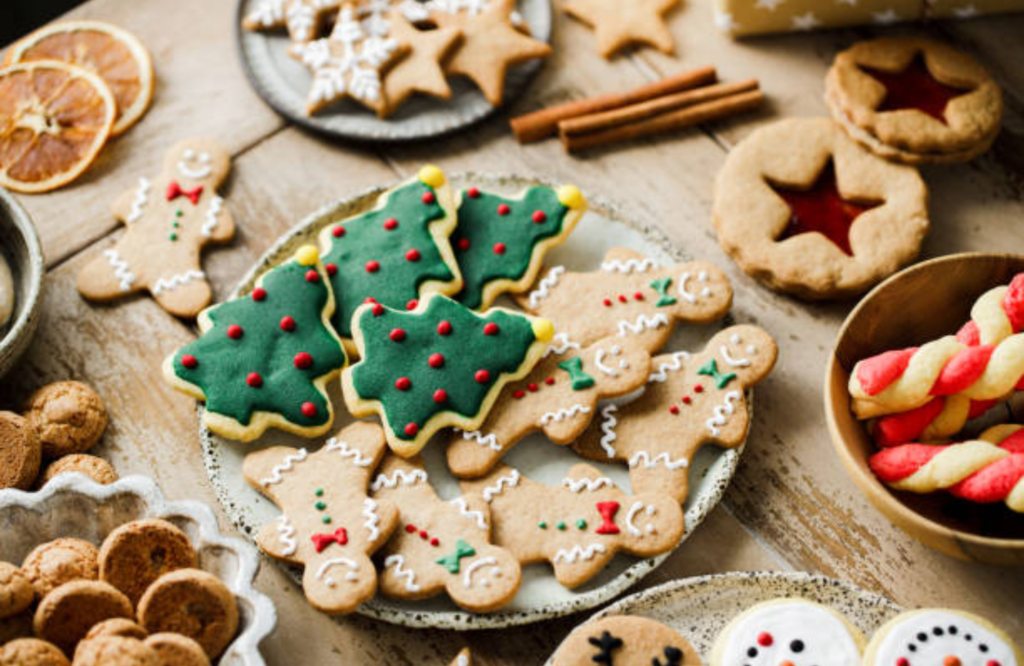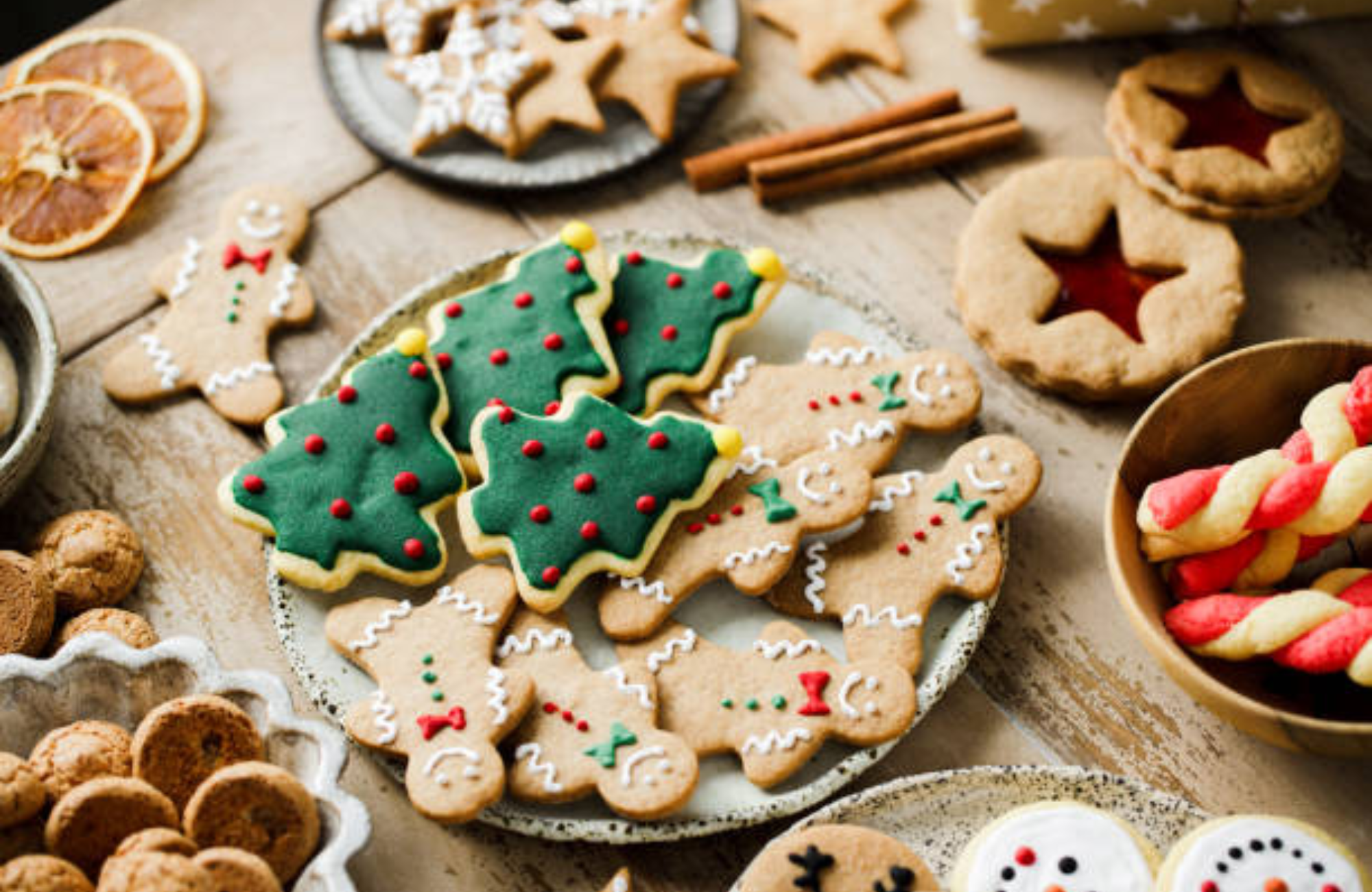Introduction
Baking has always been a creative and joyous activity, but there’s something uniquely exciting about baking colorful cookies. The vibrant hues, the playful patterns, and the limitless possibilities transform a simple baking session into an unforgettable adventure. For bakers of all levels, adding color to cookies not only elevates their visual appeal but also brings an element of fun and creativity to the process.
Colorful cookie ingredients open the door to artistic expression. From natural dyes derived from fruits and vegetables to whimsical sprinkles and edible glitter, these elements make baking a multisensory experience. Whether you’re preparing treats for a celebration or simply indulging in a weekend hobby, colorful cookies turn ordinary moments into extraordinary memories.
- Introduction
- Understanding the Basics of Colorful Baking
- Essential Ingredients for Colorful Baking Cookie
- Natural Coloring Ingredients
- Artificial Coloring Options
- Edible Decorations That Add Color
- Fun Additions for Texture and Flavor
- Unique Ingredients for a Creative Touch
- Mixing and Matching Colors
- Popular Themes for Colorful Cookies
- Fun Baking Techniques
- Troubleshooting Common Issues
- Colorful Cookie Ideas for Kids
- Tips for Hosting a Fun Baking Adventure
- Healthier Alternatives for Colorful Cookies
- Storage and Presentation of Colorful Cookies
- Colorful Cookies Around the World
- The Impact of Colorful Cookies on Celebrations
- Encouraging Experimentation and Creativity
- Conclusion
Understanding the Basics of Colorful Baking
What Makes an Ingredient Colorful
Ingredients gain their color from pigments such as carotenoids, anthocyanins, and chlorophyll in natural sources, or synthetic dyes in artificial options. These pigments interact with light, producing the vibrant hues that make cookies visually stunning. Understanding the source of these colors helps bakers choose the right ingredients for their vision.
The Science Behind Edible Colors
The science of edible colors involves the interaction of pH, heat, and light. For example, baking soda can intensify certain hues, while acidic environments may alter others. Knowing how these factors influence your chosen colors ensures consistent results in your baked creations.
Natural vs. Artificial Coloring Options
Natural colorings are derived from fruits, vegetables, and spices, offering subtle, earthy tones and health benefits. Artificial colorings, on the other hand, provide bold and vivid hues that can withstand heat and light better. The choice between the two depends on your baking goals and personal preferences.
Essential Ingredients for Colorful Baking Cookie
Flour Varieties for Vibrant Cookie Bases
Different types of flour, such as almond, oat, or traditional wheat flour, can influence the color and texture of your cookie base. For a bright foundation, bleached flour creates a lighter canvas for vibrant decorations.
Sugars That Add Sweetness and Sparkle
Granulated, powdered, and sanding sugars enhance the sweetness and shimmer of cookies. Colored sugar crystals can be used directly in the dough or as a decorative topping.
Butter and Oils That Enhance Texture and Shine
Butter adds a creamy texture and a slight golden hue to cookies, while oils like coconut or avocado can alter the final color and sheen. Choosing the right fat complements the vibrant ingredients.
| Recipe Component | Details |
|---|---|
| Recipe Name | Rainbow Sprinkle Sugar Cookies |
| Preparation Time | 30 minutes (10 minutes prep, 20 minutes baking) |
| Ingredients | – 2 ¾ cups all-purpose flour- 1 teaspoon baking soda- ½ teaspoon baking powder- 1 cup unsalted butter (softened)- 1 ½ cups granulated sugar- 1 egg- 1 teaspoon vanilla extract- Assorted rainbow sprinkles (about ½ cup) |
| Method of Preparation | 1. Preheat oven to 375°F (190°C). Line baking sheets with parchment paper.2. In a medium bowl, whisk together flour, baking soda, and baking powder. Set aside.3. In a large bowl, beat butter and sugar until creamy. Add the egg and vanilla extract, mixing until well combined.4. Gradually add the dry ingredients to the wet ingredients, mixing until a dough forms.5. Scoop tablespoon-sized balls of dough and roll them into the rainbow sprinkles, ensuring an even coating.6. Place the dough balls 2 inches apart on the prepared baking sheets.7. Bake for 8-10 minutes, or until the edges are lightly golden. Allow cookies to cool on the baking sheet for 5 minutes before transferring them to a wire rack. |
| Decoration | – Once cooled, drizzle cookies with melted white chocolate for added flair.- Add additional sprinkles on top of the chocolate drizzle while it’s still wet for a multi-textured effect. |
| Serving Suggestion | Serve with a glass of milk or as a colorful centerpiece at parties. |
Natural Coloring Ingredients
Using Fruit and Vegetable Powders for Vibrant Hues
Powders made from beetroot, spinach, and blueberries provide a natural and nutrient-rich way to color cookies. These powders dissolve easily into dough or frosting, yielding rich shades without overpowering flavors.
Creating Colors with Herbs and Spices Like Turmeric and Matcha
Turmeric adds warm yellow tones, while matcha contributes a striking green. These ingredients not only add color but also impart unique, complementary flavors.
Beetroot, Blueberries, and Other Natural Extracts for Baking
Liquid extracts from fruits and vegetables allow bakers to infuse natural colors seamlessly. They work well in both the dough and glazes.
Artificial Coloring Options
When to Use Food Gels, Liquids, and Powders
Food gels and powders are ideal for achieving intense colors without altering the dough’s consistency. Liquids work well for pastel shades or frosting.
Tips for Blending Artificial Colors Effectively
Combine small amounts of primary colors to create custom shades. Always mix gradually to avoid overpowering the dough or frosting.
Health Considerations for Artificial Colorings
Choose food-safe and FDA-approved artificial dyes. While they provide unmatched vibrancy, use them sparingly to balance visual appeal and health concerns.
Edible Decorations That Add Color
Sprinkles, Nonpareils, and Edible Glitter
These ready-to-use decorations instantly enhance cookies. Sprinkles and nonpareils add texture, while edible glitter brings a magical shimmer.
Decorative Sugars and How to Use Them
Colored sugars are versatile for dusting over cookies or pressing into dough. Their sparkle adds a festive touch.
Candy Melts and Chocolate Drizzles for Artistic Effects
Melted candy and chocolate can be dyed and drizzled to create intricate designs. They’re perfect for adding layers of color and dimension.
Fun Additions for Texture and Flavor
Using Nuts and Seeds in Colorful Patterns
Chopped pistachios, almonds, and sesame seeds provide texture and color contrasts. Arrange them in patterns for added visual interest.
Incorporating Dried Fruits for Pops of Color and Sweetness
Dried cranberries, apricots, and mango pieces not only add vibrant color but also infuse cookies with natural sweetness.
Creative Use of Marshmallows, Gummies, and Candy Pieces
Soft candies and marshmallows can be pressed into dough for fun textures, while gummies add chewy, colorful surprises.
Unique Ingredients for a Creative Touch
Using Freeze-Dried Fruits for Vibrant Specks
Freeze-dried raspberries and strawberries retain bold colors and provide a tart contrast to sweet cookie bases.
Edible Flowers for a Sophisticated and Colorful Look
Flowers like pansies and violets can be pressed into cookies for an elegant, natural decoration.
Experimenting with Colorful Cereal and Pretzels
Cereal and pretzels dipped in colored chocolate add a playful and crunchy element to cookies.
Mixing and Matching Colors
Understanding the Color Wheel for Cookie Designs
The color wheel helps bakers pair complementary and analogous colors for harmonious designs. Avoid clashing hues for a polished look.
How to Avoid Muddy or Dull Colors in Your Cookies
Always start with a clean dough base and mix colors in small amounts. Overmixing can lead to muted shades.
Tips for Achieving Ombre and Marbled Effects
Layer colors gradually for ombre designs. Swirl two or more colors lightly for a marbled appearance without blending completely.
Popular Themes for Colorful Cookies
Rainbow-Inspired Cookie Recipes
Create multicolored cookies by layering or piping rainbow shades. These are perfect for celebrations and parties.
Seasonal and Holiday-Themed Colorful Cookies
Incorporate colors inspired by holidays, such as red and green for Christmas or pastels for Easter.
Cookies Inspired by Favorite Characters or Pop Culture
Design cookies featuring iconic characters or themes using carefully chosen colors and decorations.
Fun Baking Techniques
Layering Dough for a Surprise Color Reveal
Roll and stack colored dough layers, then slice to reveal colorful patterns inside.
Using Cookie Cutters for Shaped and Colorful Designs
Shape cookies into stars, hearts, or themed designs for added visual appeal.
Piping Techniques for Intricate and Colorful Details
Use piping bags to add detailed, colorful patterns with icing. Practice creates precision and artistry.

Troubleshooting Common Issues
Fixing Colors That Fade During Baking
Choose heat-stable colors and avoid overbaking. Cover cookies with foil if necessary to preserve vibrancy.
Preventing Bleeding Between Different Colors
Chill dough between steps to prevent colors from blending unintentionally.
How to Salvage Over-Mixed Dough
Add more flour or a fresh batch of dough to balance the consistency and avoid dull colors.
Colorful Cookie Ideas for Kids
Simple Recipes Kids Can Help Create
Choose recipes with minimal steps, like sugar cookies with colorful sprinkles.
Using Colorful Ingredients to Teach Baking Basics
Engage kids by explaining how ingredients work and letting them mix colors.
Decorating Parties with Colorful Cookie Kits
Provide pre-baked cookies and colorful decorations for interactive fun.

Tips for Hosting a Fun Baking Adventure
Setting Up a Colorful Baking Station
Organize ingredients, tools, and decorations to streamline the process and inspire creativity.
Essential Tools for Colorful Cookie Baking
Invest in piping bags, food-safe brushes, and cookie cutters for professional results.
Encouraging Creativity with Friends and Family
Allow everyone to explore their own ideas, turning baking into a collaborative experience.
Healthier Alternatives for Colorful Cookies
Low-Sugar and Sugar-Free Colorful Options
Use stevia or monk fruit sweeteners to reduce sugar without compromising flavor.
Gluten-Free and Vegan Colorful Cookie Ideas
Experiment with almond flour, coconut oil, and plant-based dyes for inclusive baking.
Tips for Using Natural Dyes in Healthier Recipes
Combine natural powders and extracts with wholesome ingredients for vibrant yet nutritious treats.
Storage and Presentation of Colorful Cookies
How to Store Colorful Cookies to Maintain Vibrancy
Store cookies in airtight containers away from light and moisture to preserve colors.
Packaging Ideas for Colorful Cookie Gifts
Use clear boxes or decorated tins to showcase the vibrant cookies attractively.
Displaying Colorful Cookies for Parties and Events
Arrange cookies on tiered trays or colorful plates for a striking visual impact.
Colorful Cookies Around the World
Traditional Colorful Cookies from Different Cultures
Explore Italian rainbow cookies, Middle Eastern ma’amoul, and other colorful treats from around the globe.
Unique Ingredients Used in International Recipes
Discover saffron, pandan, and ube as vibrant ingredients in global baking traditions.
Adapting Global Cookie Recipes for Your Own Kitchen
Incorporate international elements while personalizing them for local tastes and styles.
The Impact of Colorful Cookies on Celebrations
How Vibrant Cookies Elevate Festive Moods
Bright, cheerful cookies amplify the joy of any gathering, creating a sense of celebration.
Customizing Cookies for Birthdays, Weddings, and Holidays
Personalize cookies with themed colors and designs to suit special occasions.
Creating Memories Through Colorful Baking Experiences
Baking and sharing colorful cookies becomes a cherished tradition that connectsq loved ones.
Encouraging Experimentation and Creativity
Tips for Coming Up with Your Own Colorful Cookie Recipes
Experiment with unusual ingredients, innovative designs, and unique flavor combinations.
Learning from Baking Mistakes to Improve
Treat mishaps as opportunities to refine your skills and push creative boundaries.
Sharing Your Colorful Cookie Creations with Others
Post photos, exchange recipes, or host baking events to spread the joy of colorful cookies.
Conclusion
Baking colorful cookies is more than a culinary exercise; it’s an artistic and joyful pursuit that brings people together. The vibrant hues and imaginative designs make every baking session an adventure worth embarking on. Let your creativity soar, and inspire others to join in


2 thoughts on “Colorful Cookie Ingredients for a Fun Baking Adventure”